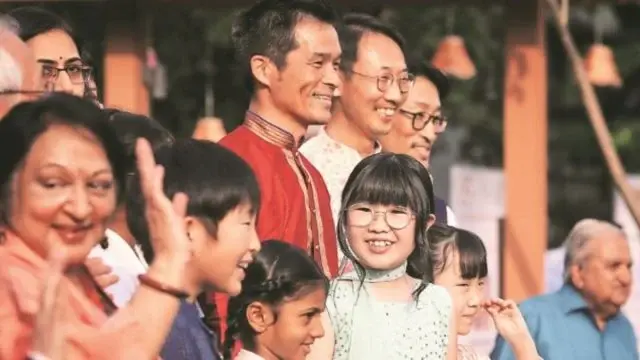Mehul Bansal, Jadetimes News
Adv. M. Bansal is an Advocate and a Jadetimes News Reporter covering legal news

The Japanese National Diet today passed a new version of a divorce law that for the first time provides joint custody of children after divorce, further enhancing the country's family law system. This legislative reform has been the prime need of parents' rights movements that were fighting hard for the proper sharing of parenting responsibilities between both parents after separation.
It was one of the few developed countries which did not allow joint custody. It normally was conferred on one parent, most often the mother, alone. Consequently, it posed a hard challenge to non-custodial parents, mostly fathers who quite often were unable to take proper care of children. The new law now allows both divorced parents to share custodial rights as well as make joint decisions in areas including education, healthcare, and upbringing.
A Step Towards Child Rights
This legislation moves Japan closer to complying with the world's view on the issue of child rights. The United Nations Convention on the Rights of the Child ensures that these children have the right to their personal lives with each parent, regardless of marriage. Many countries of Europe, North American states, and large portions of Asia have ventured into more advanced and progressive custody arrangements as it respects children's need to develop emotionally and psychologically within the aftermath of divorce.
Advocates for child rights in Japan welcome the law as the first stride toward it. It respects the value of both parents to a child and is a precedence for future reforms in the family law, said the top child rights activist Takashi Yamada. It is quite important that children continue to be attached to both their parents after their divorce for the soundness of their emotional well-being.
Child Rights around the World: Custody Laws
The trend in custody cases worldwide is towards the joint arrangements. In most of the Western world, joint custody is automatically established with legislative structures that support the need of cooperating parents after separation. This is brought about by research evidence that children function better emotionally and psychologically when they retain close relationships with both parents.
Still, however, the problems continue to exist worldwide. Many countries still hold a more traditional ideology; in numerous countries, the legal system is configured to award sole custody not necessarily for the best interest of the child but based on one parent's desires over the other. Mothers are awarded custody automatically in many courts, and fathers have to work twice as hard to prove themselves as fit.
The landscape is slowly changing, with many nations reviewing their custody laws in light of new information from child welfare research and advocacy. Examples abound where Sweden and Canada agreed to more comprehensive policies based on the understanding that it is beneficial for children to have both parents involved.
Japan is at the crossroads in changing its approach to family law through the joint custody law. The success of the reform will depend on the effectiveness of its implementation and the willingness of the parents to embrace cooperative parenting after divorce.
It not only makes the rights of children inside Japan better but also contributes in creating a global debate on child rights while indicating an increasing realization that children's welfare must be at the heart of family law reform.


































Comments